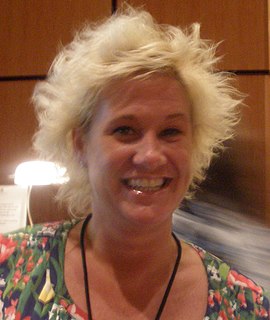A Quote by Satoru Iwata
When it came time to take a job, I had the distinction of joining the smallest company of any graduate in my class. I left to become only the fifth full-time employee of HAL, and when I told my father this, you can imagine, it was not the happiest moment in the history of my family.
Related Quotes
John Shook's experience shows just how important problemsolving is at Toyota - it comes before any other job skill for the graduate intake. When I joined Toyota in Toyota City (where for a time I was the only American) in late 1983, every newly hired college graduate employee began learning his job by being coached [...]
I know where "Blubber" came from. It came from stories that my daughter told me when she came home from fifth grade. There was a kid in the class who was being bullied. We didn't even call it bullying then, that's what's so weird. Victimization in the classroom. The word bully was so out, was so not in use for all those years and now it's back big time.
It's a life choice to be a girl chef, as it is to be a boy chef. It feels pretty natural to me. It's a full-time, full-scale, full physical job, and a lot of times, it can take the place of kids and family. To be in this career is much more difficult for a woman to have a family, marriage - whatever that means. It's not a 9-5 job.
I was brought up in a very naval, military, and conservative background. My father and his friends had very typical opinions of the British middle class - lower-middle class actually - after the war. My father broke into the middle class by joining the navy. I was the first member of my family ever to go to private school or even to university. So, the armed forces had been upward mobility for him.
I had in effect been thrown out of graduate school because I was a lousy graduate student, and I had to find a job, and I took the first job that came along. It happened to be a management trainee job in a life insurance company, and I just stayed. It was always, mainly, the idea was that I would support myself as a writer, and I knew I would have to have some sort of work, and it didn't make a whole lot of difference to me what it was. I mean, I could have been a paper hanger or something for that matter.
My father told me never to take my foot off a ladder to kick at someone who was kicking at me. When I did that, I would no longer be climbing. While they are kicking, my father told me, I should keep stepping. They can kick only one time. If I continued to climb, they would be left behind. In trying to hurt me, to impede my progress, they would get left behind because they allowed themselves to get sidetracked from their agenda.
For sure, they don't teach you this in history class, but in colonial times, the person who got left in the stocks overnight was nothing less than fair game for everybody to nail. Men or women, anybody bent over had no way of knowing who was doing the ram job, and this was the real reason you never wanted to end up here unless you had a family member or a friend who'd stand with you the whole time. To protect you. To watch your ass, for real.
I've always known that I wanted to be an actor. My family kind of was a theatrically inclined family. My father came to New York when he was a young man to be an actor and he, over a course, was in a couple Broadway musicals. I grew up in family where theater was always part of the vocabulary. By the time I was a teenager I was just totally obsessed, and it was the only thing I could imagine myself doing.
What you should be in a rush for isn't necessarily the immediate monetary return, but it's to know that this equation existing between an employee and a company is being honored. What's the equation? I'm going to give you my most precious thing that I have - my time and my reputation. That's what the employee says. And the company says I'm going to take your time and your reputation and direct it at things that we believe collectively have a huge impact opportunity to do something extremely positive. And that positivity will get measured in impact and also economic upside.


































